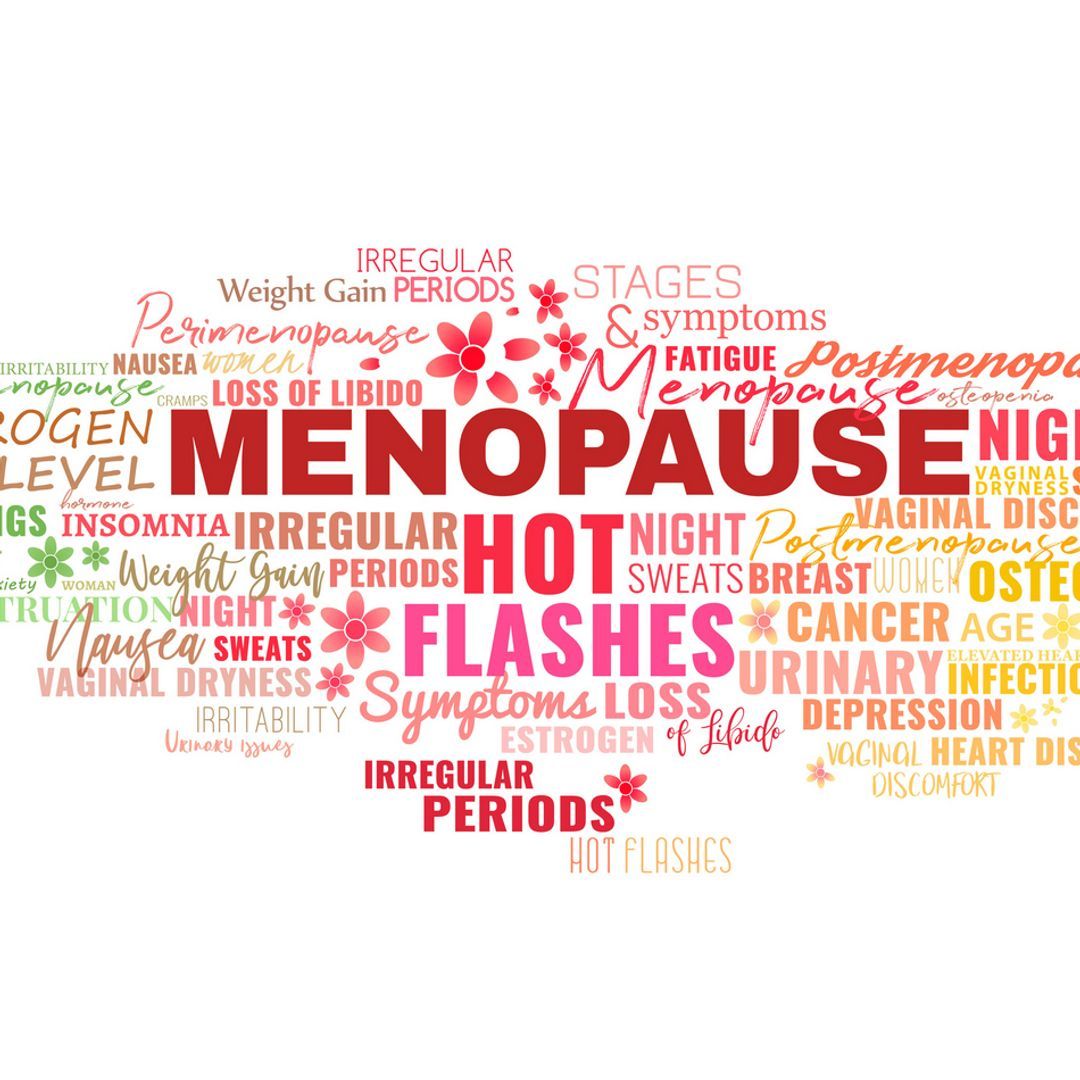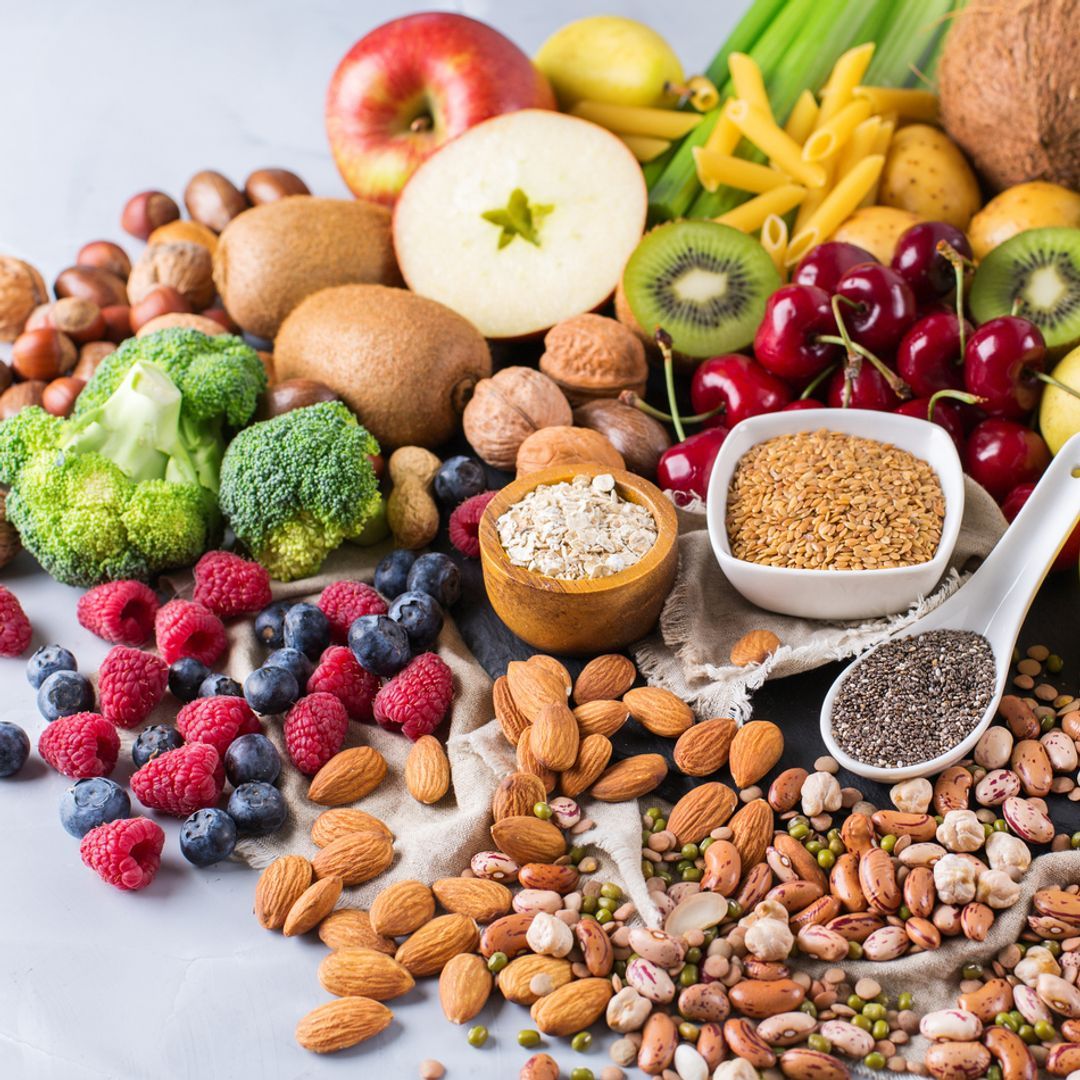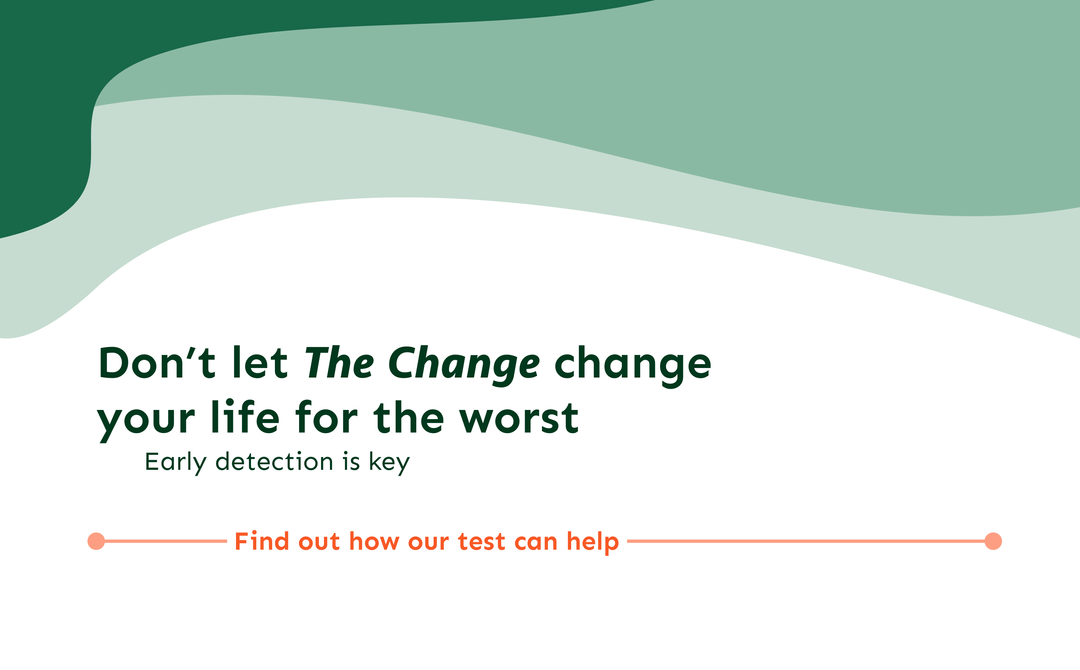Top Tips On How To Prevent Weight Gain During Menopause
If you've reached menopause and have been struggling with weight gain, it can affect your physical health and take a toll on your mental well-being. Menopausal symptoms are often debilitating and can last for several years.
Key Points:
- Weight gain is a common symptom of menopause, as women at this stage of life tend to gain around 5-8% of their body weight on average.
- Hormonal changes that occur during menopause lead to weight (that is, fat tissue) gain primarily in the abdominal (tummy) area.
- Average weight gain may equal to around 1.5 pounds a year.
- Genetics, ageing and lifestyle factors all play a part in weight gain during menopause. The good news is that with the adoption of a healthy diet, sleep, and exercise routine, menopause-related weight gain is preventable.
- The GlycanAge test is a biological age test that can help you determine whether your current lifestyle is optimal and whether certain changes might be necessary for you to maintain a good quality of life during menopause and live a healthier life for longer.
If you've reached menopause and have been struggling with weight gain, it can affect your physical health and take a toll on your mental well-being. Menopausal symptoms are often debilitating and can last for several years. Although it can be a difficult time for many women, there is plenty of proactive advice on how to overcome menopause weight gain and improve your overall quality of life. Read on to discover what you can do.
What Causes Weight Gain During Menopause?
There is no single cause of menopausal weight gain; in fact, several factors, including hormonal changes, ageing, genetics, and lifestyle all contribute to why menopause causes weight gain, which are explored in detail below. Understanding and being mindful of each of these factors can effectively help combat any undesired weight gain.

Hormonal Changes
Oestrogen and progesterone are hormones whose levels gradually begin to decline as you enter peri-menopause, causing an increase in visceral and truncal fat around the abdomen.
Oestrogen is responsible for regulating metabolism, so as its levels begin to drop, the metabolism slows down, increasing the likelihood of weight gain.
Progesterone, on the other hand, helps balance blood sugar levels. A decline in progesterone levels can throw these levels off balance and trigger the urge to eat more. Additionally, levels of a hormone called ghrelin, responsible for inducing hunger, increase during menopause, possibly resulting in women consuming more calories.
A 2009 Seattle Midlife Women’s Health study found that levels of the stress hormone cortisol significantly increase in menopausal women, which boosts appetite and may as a consequence lead to weight gain.[1].

Ageing
Loss of muscle mass and an increase in body fat is a natural part of the ageing process. In fact, women and men lose between 3% and 8% of muscle mass each decade starting from their 30s, which sharply increases by age 60. In turn, the rate at which the body burns calories significantly slows down, thereby leading to increased fat storage, particularly around the abdomen.
Genetics
Genetics play a part in menopausal weight gain to some extent. Some women may find that they gain weight as they get older, despite not changing their eating or lifestyle habits. It could be that if your parents or relatives are prone to carrying weight around the abdomen, then there is a likely chance that you will, too.
Lifestyle Factors
Hormonal changes in menopause may also lead to a change in daily routine. For example, lower energy levels could mean less activity throughout the day, leading to fewer calories being burnt and more pronounced muscle mass loss.
Lack of sleep is another culprit that can contribute to weight gain during menopause. Hot flashes, night sweats, stress, and anxiety may disturb a good night's sleep. Not only can this cause reduced energy levels the next day, but it can also throw hormones further off balance and have a negative impact on metabolism.
A poor night's sleep can increase hunger, which may lead to overeating. The body often wants quick fixes to satisfy hunger, causing you to crave foods high in carbohydrates. Eating foods heavy in carbohydrates (or in general, high in calories), when combined with a lack of physical activity, will promote fat storage in the body.
How Much Weight Do You Gain During Menopause?
On average, weight gain affects around half of women going through menopause, causing around 5% to 8% of body weight gain. According to research by Kapoor et al. in 2017, women can gain approximately 1.5 pounds of fat annually once they reach their 50s [2].
How To Prevent Weight Gain During Menopause
Thankfully, there are several ways you can take back control of your menopausal weight gain. From increasing exercise and improving your sleep routine to eating healthy and effectively managing stress, the key is to be mindful of your daily habits and assess whether they are helping or hindering your weight management.
Exercise
Increasing the amount of time you engage in physical activity can effectively help prevent excess weight gain. Consistency is crucial, whereas the amount of activity will depend on exercise intensity and your fitness level. You should aim for around 30 to 40 minutes of moderate exercise at least five days a week. You can try various types of exercise to build muscle mass and shed excess pounds.
Aerobics
Engaging in a moderate aerobic activity like brisk walking, jogging and running, or even biking and swimming a few times a week helps increase heart rate and burn calories. A 2011 study published by the Journal of Mid-Life Health shows that aerobic or cardio exercise may also help preserve muscle mass during weight loss [3].
Strength or Resistance Training
Mild strength or resistance training is recommended alongside moderate aerobic activity at least twice a week to preserve muscle mass and bone density and promote weight loss. The idea is to target all the major muscle groups, including legs, arms, torso, hips, arms and shoulders.
It is important not to overexert yourself when doing strength exercises to avoid injury. Intensity levels vary for each woman; the key is to go at your own pace and do whatever suits you best.
Tai Chi or QuiGong
Tai Chi and QuiGong are Chinese practices that incorporate low-impact meditative movement and are proven to be as successful as aerobic exercise and strength training in eliminating abdominal fat.
For this reason, it is a viable alternative to aiding weight loss for women who may be unable to engage in strenuous activity due to health reasons or restricted mobility.
Sleep
Sleep should be a top priority if you want to keep your weight steady and have a healthy immune system. Even one poor night's sleep can adversely impact your blood sugar levels, leading to an increased appetite and sugar cravings the next day. As mentioned before, insufficient sleep can also increase stress levels during the day, leading to comfort eating as a way to self-soothe.

Because menopausal symptoms can disrupt your sleep, adopting a good sleep routine is essential in getting a decent night's rest. Taking a cool shower and sleeping in a cool, dark room can help keep night sweats and hot flashes at bay; crack open a window or leave a fan running if you need to.
Try to go to sleep and wake up at the same time each day to regulate your body's circadian rhythm. More importantly, try going to sleep before midnight, as this is when your body produces melatonin; a hormone that signals the body to rest.
It's best to limit TV, laptop and phone screen exposure at least one hour before going to bed. The blue light emitted from these devices can disrupt melatonin production, causing a restless night's sleep.
Diet
What you eat and how much you eat can significantly affect how well you manage your weight during menopause.

Because muscle mass decreases as you age, the amount of calories your body needs also reduces; therefore, it is crucial to be mindful of your daily calorie intake. Keeping a food journal is a great way to track your calorie consumption. Intermittent fasting may also help with the regulation of calorie intake.
Limit foods high in sugar and refined carbs, such as sodas and fatty foods. Such foods lack essential nutrients and make you feel hungry more often.
On the other hand, eating more high-fibre, nutrient-dense foods, such as fruits, vegetables and whole grains, will give your body the nutrients it needs to function optimally and keep you fuller for longer. Some good sources of fibre include flaxseed, dark leafy greens, beans, peas and lentils, wholegrain bread, pasta, and rice.
Consuming lean protein from meat or legumes is also vital in preserving muscle mass and can keep your hunger satisfied for longer.
Dairy foods, such as milk, yoghurt and cheese, have been proven to aid in weight loss due to their high calcium content. In fact, one 2019 study published by the Advances In Nutrition journal found that people who ate the highest amounts of dairy and protein lost twice as much belly fat and gained more muscle mass than those who consumed dairy in lower amounts [4].
Practice Portion Control and Mindful Eating
Because your metabolism slows considerably during menopause, the number of daily calories you burn decreases; it is, therefore, important to be mindful of what you eat and how much.
Eat three nutritious meals a day and try not to eat anything at least three hours before your bedtime, as this is when your body is preparing to rest, and eating foods at this time can make it harder to digest, resulting in weight gain.
You could also try eating from a smaller plate to prevent calorie overload. Don’t eat until you’re full; leave some room in your stomach to allow it to digest your meal properly. It can take up to 20 minutes for your brain to process that you’re full, so eating slowly and mindfully is vital to allow yourself to tune in to your body’s signals of fullness and stop eating accordingly.
Limit Sugary Foods and Drinks
Food and drink high in sugar add excess, empty calories to your diet, which translates to weight gain. Be mindful of your daily eating habits and avoid sweet beverages such as soft drinks, juices, energy drinks and flavoured water, as well as sugary foods such as cakes, biscuits, ice cream, sweets and chocolate.
Limit Alcohol Consumption
Alcohol can make you gain weight in numerous ways; it is high in calories, prevents the body from effectively burning calories and can increase hunger, leading to poorer food choices.
While the possibility of weight gain is a good reason to limit your alcohol intake, many other risks are associated with excessive alcohol consumption - including high blood pressure, heart disease, liver disease, and some cancers.
Stress Management
Stress is often overlooked when it comes to weight management. As previously stated, the stress hormone cortisol can increase appetite and cause you to eat high-calorie, fatty foods, which is also known as 'comfort eating’.

Therefore, employing techniques that effectively keep your daily stress levels down is important. Anything from mindfulness and meditation, taking a walk, and spending time in nature, to doing yoga, seeking therapy or even talking to a friend are all proven ways to keep your stress at a minimum.
Acupuncture
As mentioned before, depleting oestrogen levels contribute to a slower metabolism and, in turn, weight gain. A 2018 study published in the British Medical Journal has proven the effects of acupuncture in boosting oestrogen levels, thereby promoting a better night’s sleep and diminishing undesired menopausal symptoms, including hot flashes and weight gain [5]. Acupuncture helps regulate appetite as well by regulating ghrelin (hunger hormone) and leptin (fullness hormone) secretion.
Cognitive Behaviour Therapy
Cognitive Behaviour Therapy (CBT) is a form of psychotherapy that essentially retrains the mind by identifying and changing negative thought patterns and behaviours. CBT can help alleviate both psychological and physical effects of menopause, from anxiety to weight gain.
This form of therapy can help women experiencing menopause lose weight by helping with their diet management and may increase their motivation to exercise, provide them with practical coping skills to manage any difficulties, and help them set reasonable weight loss goals.
Vitamin Supplementation
In some cases, it may be challenging to have your nutrient needs met through diet alone. As you get older, you're more likely to have nutrient deficiencies, so it’s good to know what vitamins help with weight loss during menopause.
Nutritional and herbal supplements can help balance hormones and stabilise blood sugar levels effectively. You can see your doctor to establish which nutrient levels need correcting.

Essential nutrients include calcium, which you usually need more of during menopause, especially if you're lactose intolerant or follow a vegan diet and can't consume dairy.
Vitamin D is another critical nutrient many people don't get enough of through diet or sunlight alone. Low vitamin D levels also prevent the body from using calcium effectively. Both of these nutrients are integral to bone health maintenance, particularly during menopause when bone strength gradually diminishes.
Other nutrients that may be beneficial during menopause are B vitamins, magnesium and folate.
Speak With Your Doctor
If you’re doing all you can to manage your weight during menopause but are still struggling to shed excess pounds, you may consider speaking with your doctor about alternative treatment options, including strategies to get rid of menopause belly.
Many women turn to Hormone Replacement Therapy (HRT) to help subside the effects of menopausal symptoms, such as hot flashes, night sweats, and weight gain.
If you are interested in hormone replacement therapy, it is best you address this with your doctor. HRT may not be an option for everyone and it is also important to bear in mind that, as with any other medicine, it has health benefits as well as side effects and risks.
How To Manage Menopause Weight Gain With Diet Plans
Several diet plans have been associated with weight loss during menopause; however, there is no one-size-fits-all approach, so following a plan that best suits your health and lifestyle needs is recommended.
The Low-Carb Diet
Evidence suggests that following a ketogenic diet, which consists of high-fat and low-carb foods, can prevent menopausal weight gain. In fact, a 2017 study by the Women’s Health Initiative of over 88,000 women identified a positive correlation between a low-carb diet and weight loss; on the other hand, women who followed a diet low in fat showed an increased risk of weight gain [6].
With that said, some health risks are associated with this diet, including an increased risk of heart disease, nutrient deficiencies, and the ‘keto flu’. Always consult your doctor or healthcare professional before following a low-carb diet.
The Paleo diet, also known as the ‘caveman diet’, is another viable option for women who want to shed menopausal weight in a healthy way and keep it off in the long term. One 2018 Swedish study by Umea University found that postmenopausal women who followed a Paleo diet lost more abdominal fat and also managed to keep the weight off two years after, in comparison to those who did not follow this diet [7].
The Vegan/Vegetarian Diet
Vegan and vegetarian diets are thought to be generally healthier than a typical Western diet that primarily consists of processed foods and meat.
There is some evidence to suggest that women who follow a vegan or vegetarian diet have found success in managing menopausal symptoms and related weight gain. A 2005 study by Barnard et al. found that women following a plant-based diet experienced fewer night sweats and sustained weight loss than their omnivorous counterparts [8].
However, despite these findings, there is no conclusive evidence to suggest that women following a predominantly plant-based diet with low amounts of meat and animal products also can’t reap these benefits. The key is to make small, sustainable changes to lose weight in a healthy way and keep it off long-term.
The Mediterranean Diet
While the Mediterranean diet is widely-touted for its overall health benefits and for reducing the risk of heart disease, it can also help you lose weight during menopause. This diet comprises of plenty of antioxidant and anti-inflammatory foods low in saturated fats, such as olive oil, fruits, vegetables, legumes, nuts and whole grains.
Much of the evidence suggests that a Mediterranean diet can effectively regulate weight in menopausal women, prevent cardiovascular and metabolic diseases, and increase muscle mass and bone density.
Learn More About Your Body With A GlycanAge Biological Test
The age at which a woman enters menopause varies greatly. While this transition most often begins between the ages of 45 and 55, in some women it can occur as early as in their mid-30s or as late as in their 60s.
Some women may experience symptoms of menopause at an earlier age than expected and have difficulties with fertility. Although a test that would detect the exact onset of menopause does not exist, getting to know your biological age may be of great help in understanding some of the physical changes that you may be going through and establishing if those are due to your entering menopause.
GlycanAge test is a biological age test that will provide you with such information and will help you assess your current lifestyle as well as guide you through any lifestyle optimisation, if that is necessary. This way your menopause experience does not have to be a painful one, but rather positive.
The process of taking a test is quick and easy, and you can do it from the comfort of your own home. All it involves is a simple finger prick, after which you send your samples off to a lab that processes them in 3 to 5 weeks. There are various plans and payment options to choose from, regardless of your health goals or where you are on your wellness journey.
FAQ
When does menopausal weight gain start?
The age at which menopausal weight gain starts can vary from woman to woman. Factors such as lifestyle, diet and genetics influence when you're likely to gain weight and how much you may gain. The age range for women to start menopause is between 40 and 58, with the average age being 51.
What is the average weight gain during menopause?
Women typically gain around 5-8% of their baseline body weight during menopause, with an average woman gaining around five pounds during this time. Several factors are associated with menopausal weight gain, including hormonal changes, decreased physical activity and increased appetite.
What are the risks associated with weight gain during menopause?
Many health implications are associated with menopausal weight gain, mainly because much of the fat deposits around the abdomen may increase the likelihood of becoming obese. Obesity is associated with an increased risk of:
- Breathing problems, such as sleep apnoea
- High blood pressure (hypertension)
- Cardiovascular disease
- Type 2 diabetes
- Certain types of cancers, such as breast, colon, and endometrial
What is the fastest way to lose weight during menopause?
There is no quick-fix method to avoid or lose menopausal weight gain. However, following a healthy diet, regular exercise routine and improving your lifestyle through proper sleep and stress management can not only help you maintain your pre-menopausal weight, but also help you lose any weight you may have already gained. Keep in mind that commitment and consistency are key.
References
- The Seattle Midlife Women’s Health Study: a longitudinal prospective study of women during the menopausal transition and early postmenopause - PMC (nih.gov)
- Weight Gain in Women at Midlife: A Concise Review of the Pathophysiology and Strategies for Management - PubMed (nih.gov)
- Exercise beyond menopause: Dos and Don'ts Mishra N, Mishra V N, Devanshi - J Mid-life Health (jmidlifehealth.org)
- Dairy Foods, Obesity, and Metabolic Health: The Role of the Food Matrix Compared with Single Nutrients | Advances in Nutrition | Oxford Academic (oup.com)
- Efficacy of a standardised acupuncture approach for women with bothersome menopausal symptoms: a pragmatic randomised study in primary care (the ACOM study) - PubMed (nih.gov)
- Evaluation of diet pattern and weight gain in postmenopausal women enrolled in the Women's Health Initiative Observational Study - PubMed (nih.gov)
- Paleolithic diet healthier for overweight women (umu.se)
- The effects of a low-fat, plant-based dietary intervention on body weight, metabolism, and insulin sensitivity - PubMed (nih.gov)


